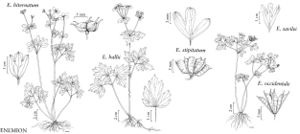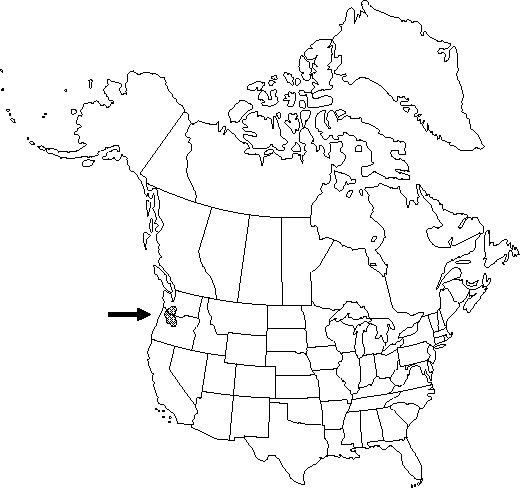Difference between revisions of "Enemion hallii"
Bull. Misc. Inform. Kew 1920: 161. 1920.
FNA>Volume Importer |
imported>Volume Importer |
||
| (2 intermediate revisions by 2 users not shown) | |||
| Line 60: | Line 60: | ||
|publication year=1920 | |publication year=1920 | ||
|special status=Endemic;Illustrated | |special status=Endemic;Illustrated | ||
| − | |source xml=https:// | + | |source xml=https://bitbucket.org/aafc-mbb/fna-data-curation/src/2e0870ddd59836b60bcf96646a41e87ea5a5943a/coarse_grained_fna_xml/V3/V3_1034.xml |
|genus=Enemion | |genus=Enemion | ||
|species=Enemion hallii | |species=Enemion hallii | ||
Latest revision as of 21:45, 5 November 2020
Stems 35-85 cm, with short, stout, woody rhizome; roots fibrous. Leaves: leaflets variously lobed and sharply dentate, apex acute, glandular-apiculate; surfaces abaxially pubescent. Inflorescences terminal or axillary, well-defined 3-10-flowered cymes with small scalelike bracts; peduncle not strongly clavate. Flowers: sepals 5-10.5 × 2.5-6.5 mm; stamens 50-75; filaments filiform to club-shaped, 4.5-8.2 mm. Follicles sessile, upright to widely divergent; body widely elliptic to widely obovate, 3.8-7 mm, gradually contracted into style beak; beak 1.1-2.5 mm. Seeds 1.8-2.2 mm, glabrous.
Phenology: Flowering late spring–early summer.
Habitat: Moist woods and streambanks
Elevation: 100-1500 m
Discussion
Enemion hallii differs from all other North American members of the genus in having well-defined cymose inflorescences. Its closest ally is thought to be the east-Asian species E. raddeanum Regel, from which it differs in having long-petiolate leaves and cymose inflorescences with bracteolate subumbels. Enemion raddeanum is characterized by sessile or short-petiolate leaves and simple, umbellate inflorescences.
Selected References
None.

